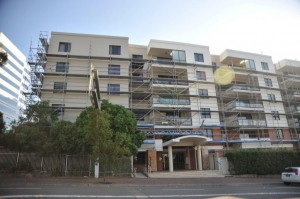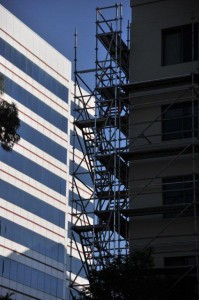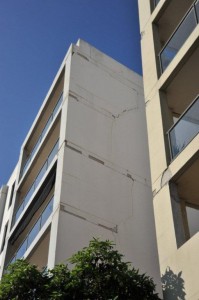On 3 December 2010 Clover Moore introduced a Bill into the NSW Parliament to amend the Strata Schemes Management Act 1996 and other strata legislation.
The Bill follows a discussion paper on proposals for strata law reform released by Clover last year and represents the culmination of several months’ consultation with owners, residents and industry stakeholders.
Overview of the Strata Legislation Amendment Bill 2010
The Bill contains a number of novel ideas. Broadly speaking, the Bill is aimed at reducing the influence developers have over the ongoing management of strata schemes, enhancing the powers of strata adjudicators and the CTTT, and improving the administration of strata schemes, for example, by allowing strata committee meetings to be held by telephone and documents to be served by email.
Reducing the Developer’s Influence Over Strata Managers, Caretakers and Lawyers
Under the Bill it would be illegal for a developer or a person connected to a developer (such as a company that employs the developer) to be appointed as a strata manager or caretaker.
The Bill would require a strata manager to disclose in writing to the owners corporation any connection with the developer or a caretaker.
If an owners corporation becomes aware that its strata manager or caretaker is the developer or is connected with the developer, the owners corporation would be able to terminate the strata manager or caretaker’s appointment.
The Bill would require lawyers to disclose in writing to an owners corporation any connection they have to the developer before providing any legal services to that owners corporation. The owners corporation would have the right to terminate the lawyer’s appointment if there is a connection between the lawyer and the developer.
Strata Committee
Under the Bill it would be an offence for a person to be elected as a member of the strata committee without making a disclosure of any connections held with the developer or caretaker. If a person is elected without making the disclosure, the owners corporation would need to declare the member’s position on the strata committee vacant. The same rules would apply to substitute strata committee members.
By-Laws
The Bill would require an owners corporation, whenever registering a change to its by-laws, to lodge a copy of the resolution approving the change and a consolidated copy of all by-laws for the strata scheme.
Levies
The Bill would allow owners corporations to raise special levies payable to the sinking fund rather than just the administrative fund as is currently the case.
The Bill also provides that if a quorum is not present at an adjourned annual general meeting, the contributions levied by the owners corporation are taken to be the same amounts as the contributions last determined, increased by the Consumer Price Index.
The Bill would clarify that a person who pays levies by cheque would not become financial for a meeting unless the cheque was received at least 5 clear working days before the meeting and a dishonour notice had not been received by the time of the meeting.
Insurance Cover
Under the Bill, owners corporations would need to increase the amount of public liability insurance cover they hold from $10,000,000.00 to $20,000,000.00.
Strata Roll
The Bill would require additional recordings to be made in the strata roll including details of each special resolution passed by an owners corporation under section 65A of the Strata Schemes Management Act 1996, details of any loan made to the owners corporation, a copy of any licence granted by the owners corporation for the use of the common property and plans and approvals for all building work that has been carried out to the common property.
Damage to Common Property
A novel provision in the Bill would make owners and occupiers jointly and severally liable for any damage caused to the common property by the occupier and give the owner a right to claim an indemnity from the occupier for any amount of damage caused to the common property by the occupier for which the owner is liable.
Apartment Occupancy Rates
An equally novel provision in the Bill would impose a statutory duty on owners and occupiers not to allow more than 2 adults per bedroom to occupy their lots.
CTTT
The Bill would give strata adjudicators the power to resolve disputes concerning Strata Management Statements. The Bill would also allow strata adjudicators to terminate the compulsory appointment of a strata manager under section 162 of the Strata Schemes Management Act 1996.
Under the Bill, the penalties that apply for contempt of the CTTT in strata matters would increase from 5 penalty units (currently $550.00) to 50 penalty units (currently $5,500.00). The Bill would also make it an offence for a person who is the subject of an order made by a strata adjudicator or the CTTT to contravene the order and render the offender liable for a penalty of up to 200 penalty units (currently $22,000.00) if prosecuted for the offence.
Supreme Court
The Bill would require the Supreme Court to hear and decide strata disputes even if the disputes could be heard and decided by a strata adjudicator or the CTTT. However the Court would be required to order the applicant to pay the respondent’s costs if the court action should have been dealt with by a strata adjudicator or the CTTT.
Service of Documents
The Bill would allow court documents to be served on an owners corporation by being left with the chairperson or strata manager whose address has been recorded as the owners corporation’s address for service of notices and by posting it to the owners corporation at that address and at the address of the building.
The Bill would also allow owners corporations and strata committees to serve documents by email on those who have given an email address for service of notices.
The Bill would further allow an owners corporation to have recorded on the common property title the address of the chairperson for the service of notices.
Office Bearers
The Bill would allow regulations to be made to set out the procedures to be observed by the chairperson and secretary in relation to meetings of the owners corporation and a code of conduct for the office bearers of the owners corporation.
Meetings
The Bill would clarify that a request for a poll vote would need to be made before the next item on the meeting agenda has been dealt with.
In a welcome provision, the Bill would allow an owners corporation to vary the time at which it will hold its annual general meeting, without having to apply to a strata adjudicator for permission to do so.
The Bill would also require the notice of a general meeting at which a change of by-laws will be considered to be accompanied by a report prepared by the strata committee explaining the effect of the proposed change.
The Bill would allow strata committee meetings to be held by telephone, closed-circuit television or by other means.
Comments on the Bill
Many of the strata law reforms that are proposed by the Bill will be welcomed by the strata industry.
The parts of the Bill which propose to beef up the powers of strata adjudicators and improve compliance with orders made by adjudicators and the CTTT are welcome reforms. So are the reforms that would allow service of notices by email, and permit strata committee meetings to be held by teleconference. Further, many will welcome the reforms to make owners liable for any damage to the common property caused by their tenants and which place limits on the number of persons that can reside in apartments to help stamp out overcrowding in some schemes.
However, some of the amendments are unnecessary, have been poorly drafted and will impose additional administrative burdens on owners corporations and strata managers with little associated benefits. For example, the reforms which would make it illegal for developers or persons connected to developers to be appointed as strata managers or caretakers, and require various disclosures, do not go far enough to achieve their objective and in practice will have little impact on the appointment of strata managers and caretakers by developers or the degree to which developers will be able to control the affairs of an owners corporation in its early stages. The reforms that would require consolidated sets of by-laws to be lodged and additional recordings to be made on the strata roll are well intended, but will add to the administrative costs incurred by owners corporations who decide to follow them and are likely to be ignored by many schemes without penalty.
Conclusion
The Bill has only just been introduced into Parliament and it is unlikely to be made law in the near future. Clover Moore has indicated that she intends to consult further during the Christmas and New Year holiday period and reintroduce the Bill with amendments next year. This is likely to be followed by further proposals for strata law reform that are likely to deal with other important issues such as proxy voting rights and illegal parking.
In view of the impact the Bill would have on the management of strata schemes, and the improvements that could be made to it, strata managers and other stakeholders in the strata industry should be encouraged to make representations in relation to the Bill to Clover Moore and the Minister for Fair Trading.
Many thanks to J.S Mueller and Co Solicitors for providing this article.
 The Netstrata
The Netstrata 













